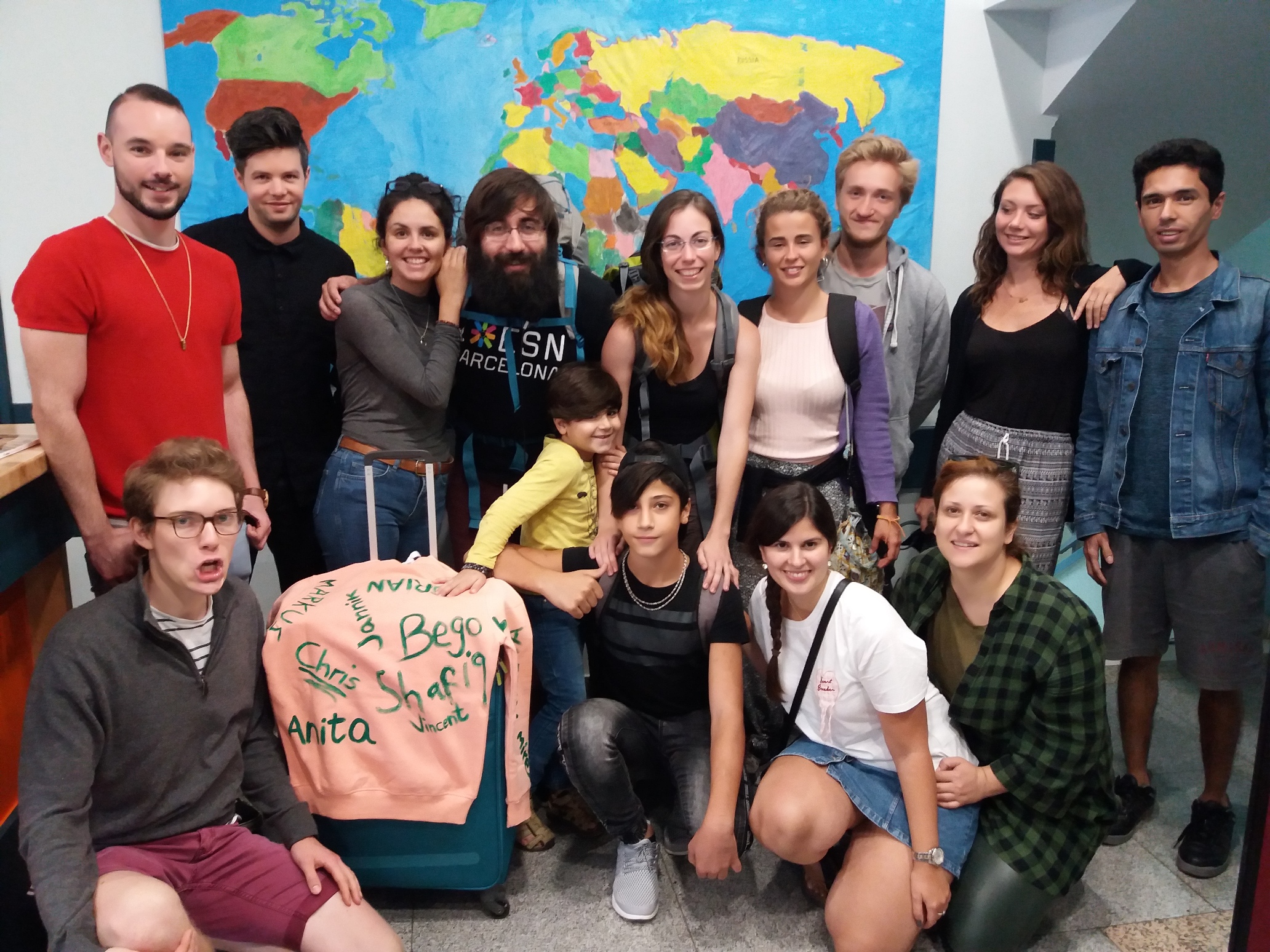
The social cooperative Wind of Renewal and its social project “Days of Welcommon” in the innovative WELCOMMON HOSTEL

Who we are
The social enterprise ANEMOS ANANEOSIS/ WIND OF RENEWAL was constituted in Greece in 2014 for the promotion of social cooperative and responsible economy, social entrepreneurship, green-circular economy, incorporation of democracy and human rights in financial and social life, as well as eco-social innovation.
One of its projects is the new WELCOMMON HOSTEL, a new Hostel in Athens and also a social experiment. We are combining two different aims: sustainable tourism in Athens with social inclusion, culture and social entrepreneurship.
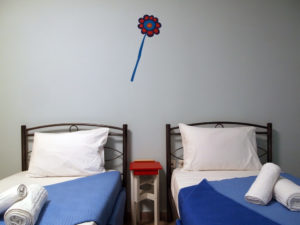
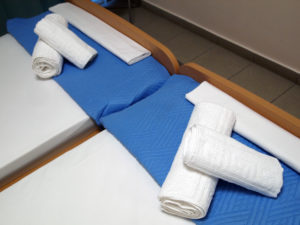
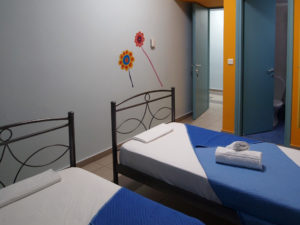
5 floors of the WELCOMMON HOSTEL are dedicated for sustainable tourism and 2 floors for social inclusion, social entrepreneurship activities, intercultural dialogue and art work, green economy and energy transition.
It is the only project in sustainable tourism and accommodation in Athens run by a cooperative, ANEMOS ANANEOSIS/ WIND OF RENEWAL. It is based on the idea of “community” as well as ecological, social and inclusive growth for all. We are part of the social change we want to see happen. Our moto is “special people, values, places”, we are part of the European LE MAT Network of social enterprises in tourism and HOSTELLING INTERNATIONAL.

What is about
It is not only an opportunity for tourists to stay in a good place in Athens; it is also a way to enjoy their stay in the city, discover its social, cultural, environmental side, exchange experiences and ideas, learn and “share”; they can participate in activities we organize (art exhibits, non-formal education, music events, visits to cultural sites) or they can organize something themselves.
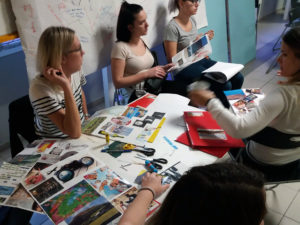
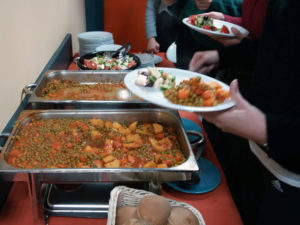
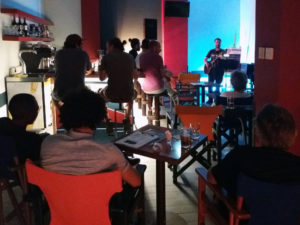
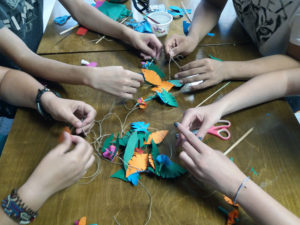
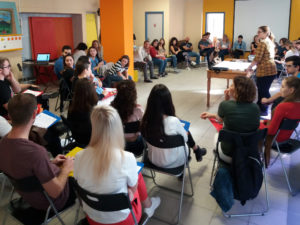
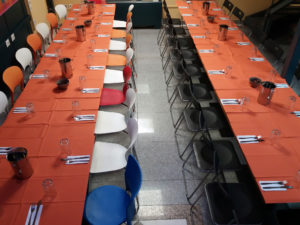
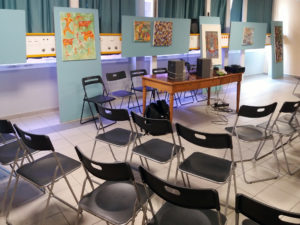
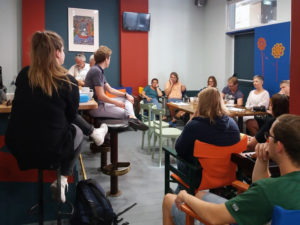
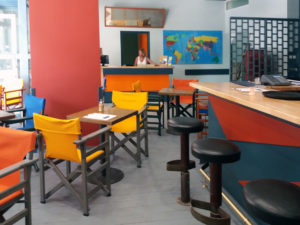
Our solution is integrated, has social impact, combines commercial activities (hostel) with social, intercultural and environmental goals.
The idea of the Hostel is to involve also guests and locals from the neighborhood into the social project by informing about our activities. For example, a guest of the Welcommon Hostel was very inspired by the social project and he offered a painting session for the participating kids. This went out really great and so volunteers, guests and refugee kids learn and benefit from each other. Other groups of visitors / tourists meet refugees and cook together or organize activities together.
The ongoing collaborations of ANEMOS ANANEOSIS / Wind of Renewal are with different organizations as:
- Many universities, like Vanderbilt University (USA), Hoch Schule Darmstand (Germany), Hohe Schule Technic und Wirtschaft Berlin, University of Candiz (Spain), Frei Universitaet Berlin and 20 other universities all over the world
- Many European networks like REVES, Social Economy Europe, CICOPA/CECOP. REScoops.eu, Housing Europe,
- Respect for Greece from Germany / Berlin is supporting and sending Volunteers to us.
- Many Municipalities in Greece
- Humanity Crew from Palestine, which also provides psychological support to our “guests”, mostly vulnerable refugees (children, teenagers, adults).
- Volunteers ofthe European Voluntary Service (which is part of the European Union’s Erasmus+ programme), coming from different countries are running social activities.
- American students from the Dikemes exchange program. Dikemes are providing language lessons to our students on a voluntary basis.
Inclusive education and empowerment for social inclusion
We are committed to work for the promotion of the education and social inclusion of all young people by the support of many volunteers all over the world. Especially for refugees:
- We give children the best possible start in their life
- we support parents by providing places for their children to meet, play and learn, build trust and develop creativity
We believe that we can build coherent and active communities by bringing people together.
These activities are not addressed only to the refugees but also to the tourists – guests of the Hostel and to the neighbors that they want to interact with the refugees through various cultural activities such as: board games, museums visits, intercultural cooking, cinema, theater etc.
Through this interaction and coming together, we promote awareness on social, cultural and ecological issues. The participants can have a better understanding of asylum seekers and hear their personals stories, but also the refugees can understand better the values, relations and functions of the hosting society. We promote a win-win and inclusive society.
Since 2016 ANEMOS ANANEOSIS / Wind of Renewal (social cooperative) has cooperated with more than 270 volunteers from all over the world. The most of them were accommodated by the Welcommon Project for non formal education and social inclusion.
Our organization focus on creating a network with national and international partners in order to promote mobility of young people for collaboration with them on intercultural dialogue, art, energy transition, social inclusion, social innovation, social entrepreneurship, circular economy.
Daily program of activities:
Language lessons
ANEMOS ANANEOSIS / Wind of Renewal provides in its innovative Welcommon Hostel language lessons for adult and teen refugees in English and German. The lessons are divided into different levelsto ensure similar language skills in each classand to achieve better results. The mainly focus of the lessons are on practical issues, learning useful vocabulary for their interactions and communication in daily life.
From Monday to Friday there is a kids-program for non-formal education at Welcommon Hostel where refugee children in school age are able to do beside of their homework different creative activities. The Volunteers are providing together with the Volunteers Coordinator an intercultural program such as:
- music lessons
- cooking
- theater
- dancing
- gardening
- art and handcrafts (mostly using recycling materials)
- team and relaxation games
- yoga
- cinema
- making puppets
The kids-program also includes:
Maths and Greek lessons to prepare the children for the school and help them with their lessons. These activities take place on the first and second floor of the Welcommon Hostel. We want to start again an integrated tutoring program for the children, to support them with the lessons in school.
Outdoor activities:
In addition to the daily program, the volunteers are organizing regularly outdoor activities around the neighborhood but also educational daytrips for the refugee children, like to visit a museum, or/and a Cultural Center or/and a parc. As part of the program Athens Open Schools of the municipality of Athens, the kids are allowed to play in the afternoons at the schoolyard of the primary school close to the Hostel, so they have contact and be familiar with the school environment.
For the most of the participating children, this program is the only educational framework they get, so the aim is to empower the kids through educational games.
Extra activities;
A Christmas show and bazaar went pretty well. We have been preparing it more than one month, stuff volunteers, children, teens and getting involved the adults and mothers as well.
- Dance Chorography
- Poetry project ( reciting poems in Arabic & English written by Afghan teens – inspired by a German project)
- Bazaar (making Christmas decorations, crafts)
- Cooking Christmas sweets
- Shadow puppets
- Christmas songs ( Greek – Arabic – English )
- Giving prizes rewards and presents
The active role of volunteers
To create more of these interactive moments the volunteers established new projects in the Welcommon Hostel, that are open to everybody, guests, locals and refugees. So once a week there is a football project in the park of the neighborhood and intercultural events take place in the Hostel: a language exchange evening and a get-together (playing board games).
“Learning from each other” is an important and interesting part of the social project. As many people with different knowledge and skills come together, we try to benefit from each other. This happens through workshops we are giving to each other and in our daily work and interactions. For example, together with one of our volunteers we had organized a workshop of fire prevention, or volunteers and participants of an Erasmus exchange group that was hosted by Welcommon Hostel discussed about their experiences and organized together some social activities. Not only tourists and groups can participate in our social, cultural and ecological activities, but also our volunteers and the kids, teens and adults can participate in workshops that visitors organize in our hostel.
We need your support
In order to maintained the social project and the proportions of the building used for the social activities (800 m2), as well as being able to develop our social – ecological projects and having a valuable continuation, it’s necessary to have more support. The salaries of the volunteers’ coordinator and the mentor as well a small part of the materials for the activities and lessons are funded by the non-profit association Respect for Greece until the end of 2019.
But this is a small part or the cost that in total is higher than 8.000 euros/month. In order to be able to continue our work we have to find, the soonest, donations, as two floors in the Hostel are not used for the guests/tourists but for the social inclusion activities. The expenses of the social project are high:
- the proportional rent cost for 2 floors – 800 m2- used for the social, cultural and ecological activities and the lessons,
- hosting 10 volunteers in special rooms,
- the activities as such,
- use-consumption of materials,
- need for supporting services, eg cleaning,
- refurbishment of the rooms,
- bills for water, electricity, heating and cooling
If you want to support our social activities with a donation, our bank account is
ANEMOS ANANEOSIS / WIND OF RENEWAL
Piraeus Bank
IBAN: GR83 0172 0180 0050 1807 7868 253
Piraeus’s BIC code is PIRBGRAA

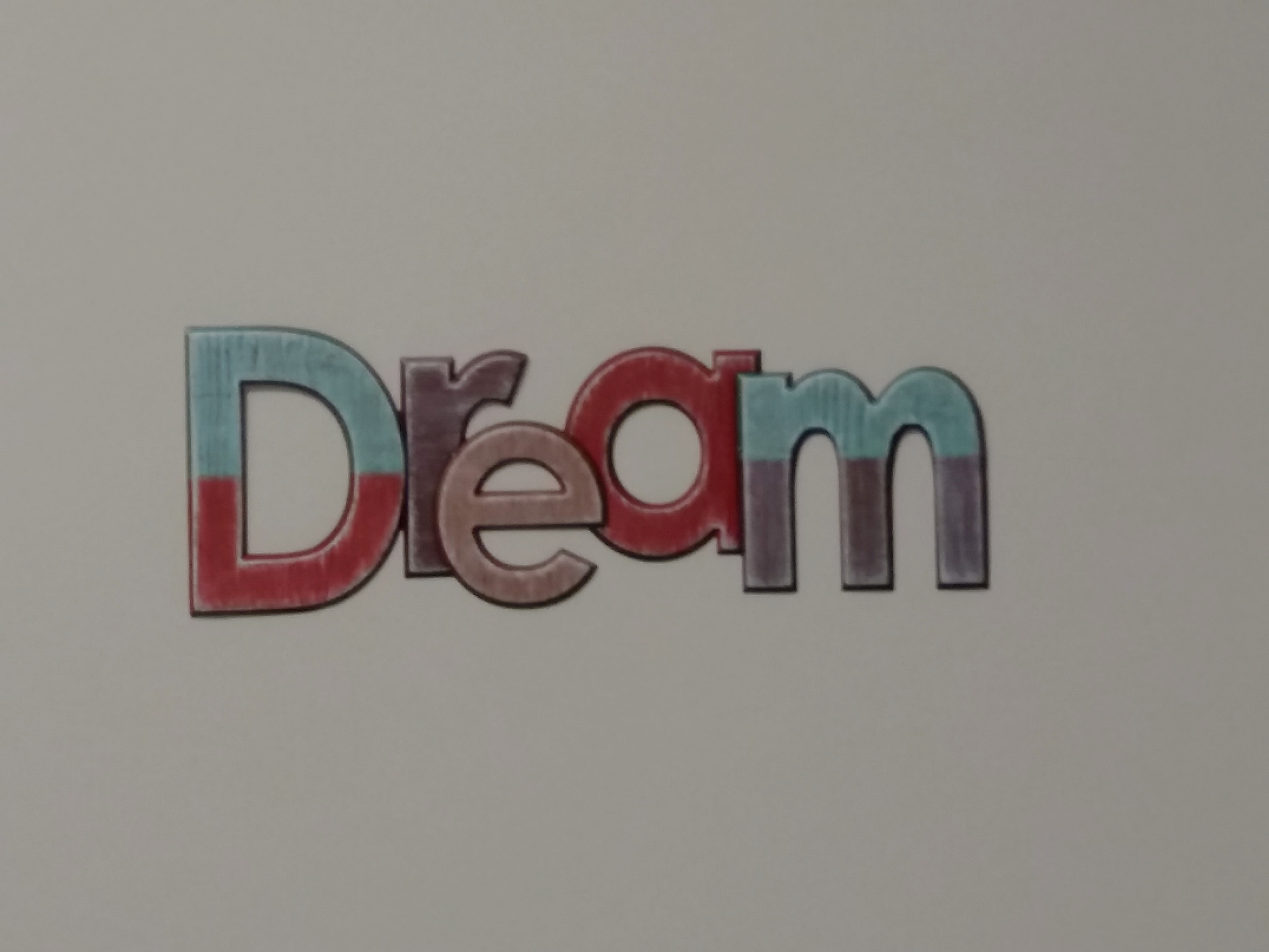





Recent Comments